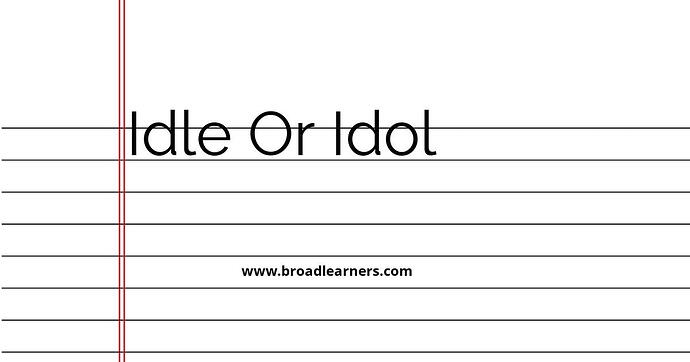'Idle' and 'idol' are commonly confused words in English grammar. Understanding the difference between 'idle' and 'idol' is important to use them correctly in written and spoken English.
'Idle' is an adjective that means not working, active, or being used. It describes something that is inactive, lazy, or without purpose.
'Idol' is a noun that refers to a person or thing that is greatly admired, loved, or worshiped. It is often used to describe a celebrity, a popular figure, or a religious symbol.
Let's take a closer look at the meanings and usage of 'idle' and 'idol'.
| 'Idle' | 'Idol' |
|---|---|
| The word 'idle' is an adjective that describes something that is not working, active, or being used. | The word 'idol' is a noun that refers to a person or thing that is greatly admired, loved, or worshiped. |
|
|
To remember the difference between 'idle' and 'idol', it can be helpful to remember that 'idle' describes something that is inactive or without purpose, while 'idol' refers to a greatly admired or worshiped person or thing.
Here are some examples of correct usage:
- The workers were idle during the strike. (not working)
- I have been idle all day, I need to find something to do. (without purpose)
- She is a huge fan of her favorite idol. (admired figure)
- Many people visit the temple to worship the idol. (religious symbol)
Remembering the correct usage of 'idle' and 'idol' will improve your grammar and communication skills.
